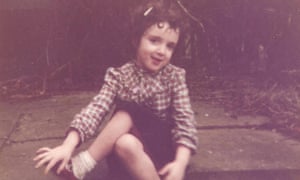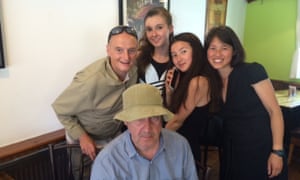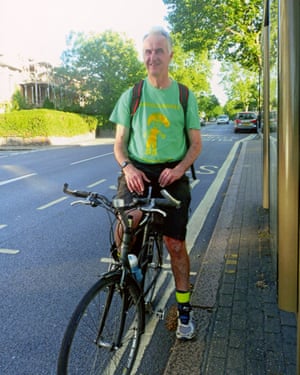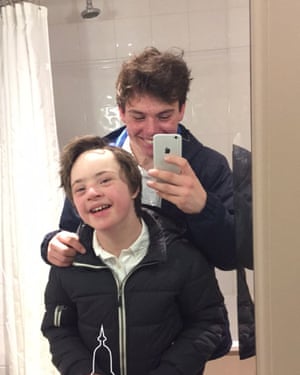This year it will be 17 years since my brother died, aged 40. I have so many regrets – regret not only for Kev, who was finally killed by the addiction that overtook him, but regret that I didn’t try to understand him more when he was alive. It is only now that I have begun to appreciate the pain and entrapment inflicted by alcohol addiction and how the man I thought I knew became swamped by this misunderstood and deadly condition. My brother deserved so much more. For so long, I questioned why drink always won, without realising that for him it was never a question of winning or losing. It was just about surviving each day.
One of my earliest memories of Kev was when I was sitting miserable and uncomfortable with chicken pox. I was around five years old and stank of calamine lotion – my entire skin was cracked pink with it. I hated missing school and was bored silly at home. Then my older brother walked into the house, carrying a bag of books. My day suddenly lit up. In my early life, Kev’s long hours as a nurse meant he didn’t often visit, but when he did he brought a different energy to the house, and a kindness.
He was the one who’d take me out for surprise shopping trips, or for weekends away at his house where he and his wife would take me to amazing firework displays and other outings. Kev always seemed full of life – talking, laughing and coming up with ideas. He loved reading and talked about books. He made me appreciate the wonder of words. I didn’t know then that he was working long hours, that he was struggling, and drinking to cope. I just saw the mask he painted on. The happy Kev, rather than the cracks. But of course all cracks deepen in time and the mask begins to slip.
His marriage fell apart and soon his drinking meant Kev was signed off from a job he loved and excelled at. He was forced to move back to our house. That’s when I saw the true problem. I was 10 years old, and I had an older brother who now spent most of his days sitting in his bedroom. His appearance had changed. His face was more red, speech slurred, eyes swollen. We still talked though. He gave me his old computer to type on and encouraged me to write.
Kev didn’t think it was silly that I wanted to be a writer: he actively encouraged me. He talked about the importance of plot structure and leaving the reader wanting more. It was just sad that he didn’t read himself any more. He still listened to music though: to David Bowie, Leonard Cohen and the Clash. He taught me to listen to the words and hear the real meaning. He told me to sound words out loud and hear how they worked. Above all, he told me not to give up on my dreams. He always looked sad when he said that, like he’d already given up on his.

But as a teenager things changed. I’d changed. I’d become ashamed of him. He’d become bloated and sick and would often do or say things to embarrass or shock people. I’d look at his closed door and imagine a monster behind it, consumed by alcohol, no longer recognisable. I didn’t want to be in his company any more. He frustrated me, and I couldn’t understand why he had chosen this existence. Finally, he moved to a house of his own and I suppose I was relieved. At least now his drinking was contained somewhere else. I could kid myself he was OK really. But he wasn’t. The reality was that he was just getting sicker and sicker.
When I became ill myself, hospitalised with quinsy, I begged my brother not to visit. I didn’t want people to see how bad he was. When I came home, he phoned me. “I’m glad you’re better,” he said. “That should be me in hospital. Not you.”
He collapsed a week later; his liver had finally failed him. I was at work when they made the decision to turn off his life support. I tried to go and see him, but I couldn’t get there in time. Guilt raged through me. I’m not religious but I found myself in a small church, lighting a candle. Praying for forgiveness. Ashamed.
The guilt affected me for a long time afterwards. I resigned from my job. I spent most nights out drinking with friends. I felt like I was lost. One night I drank too much and found myself vomiting in a toilet wondering if this had been what his life was like. I woke up feeling wretched and ill and knew I could never drink to excess again. Even now I struggle being around people who are excessively drunk.
I wish we could have helped Kev. I wish we could have saved him. But we couldn’t
It took me a long time to get over his death and in many ways perhaps I never will. But it changed me because I knew I never wanted to feel like that again. I tried to remember Kev for the man he was, not what the drink made him. And I carried on writing, because I knew then that life was short and cruel, and I had to try and achieve my goals in the time I had. When my first book was published I remembered my brother’s early encouragement and belief in me, and knew how happy he would be.
Now I’m almost at the age my brother was when he died – and that seems wrong somehow. It makes me realise how young he was and how much life he had yet to live. He had so much talent, wisdom and kindness. I wish we could have helped him. I wish we could have saved him. But we couldn’t. And I’ll never stop regretting that. But regrets are wasted. So instead, I just have to be thankful for what he gave us instead.
A few days after he died I had a vivid dream in which my brother appeared in a beautiful, peaceful setting. In the background Bowie’s lyrics played on a loop, like a soothing lullaby – “I’m happy, hope you’re happy too.”
I am happy, Kev. And I’d like to think in some way you are too.
Comments on this story will be premoderated
A moment that changed me: the loss of my brother to alcohol-related illness | Eve Ainsworth


